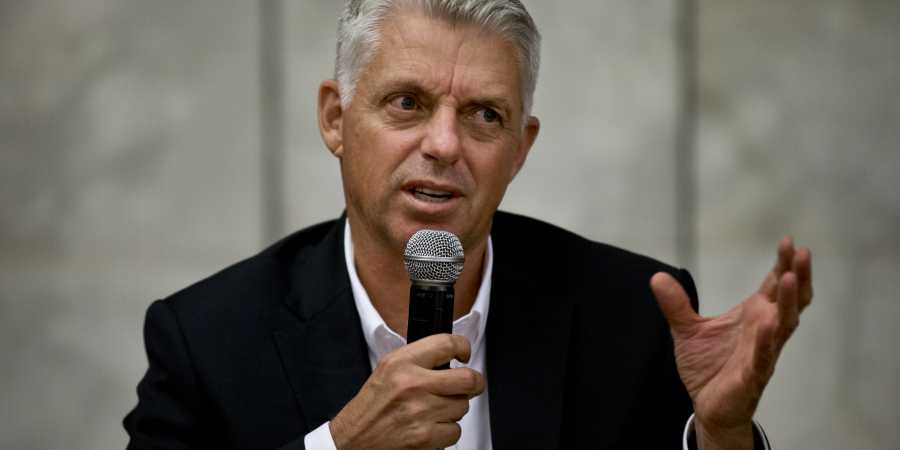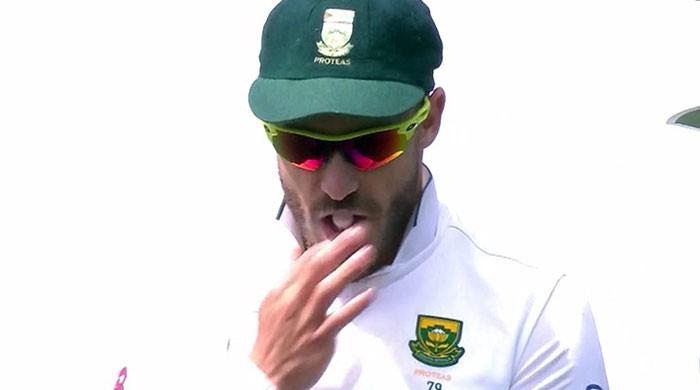Talking about playing the cricket fairly, the ICC (International Cricket Council) Chief Executive David Richardson claims that the players have the major responsibility to succeed in this mission.

While Richardson agrees with the emotions and expressions from the players on the field, he also disagrees with the ugly behaviour on the field that discredits the game.
On Monday (August 6), in the 2018 MCC Spirit of Cricket Cowdrey Lecture at Lord’s, the ICC Chief said, “As fans, we want our players enjoying and expressing themselves, we want to see emotion, passion and pride from players. What we don’t want is robots, lacking in personality, but equally what we don’t want is ugly behaviour. Lately we’ve seen too much ugly on and off the field of play. As a sport we must be united, not just in our desire to protect the spirit of the game, but every single person in the game needs to commit to living that spirit and ensuring it is relevant in the 21st century continuing to make cricket a unique sporting proposition.”
Also read: Ishant Sharma Receives A Demerit Point For An Aggressive Celebration
Talking about the spirit of cricket, Richardson added, “The spirit of cricket isn’t an historical hangover; it is part of the fabric of our sport. No other sport has codified the spirit so blatantly in its Laws, and we disregard it at our peril. The phrase ‘it’s just not cricket’ is not an accident, it’s because cricket’s DNA is based on integrity and people know that cricket represents something more than a game.”
Richardson also calls to stop the negative behaviours that harm the game. The ICC Chief has mentioned some on-field negative behaviours are – sledging that leads personal abuse, giving send-offs to dismissed batsmen, unnecessary physical contact, ball tampering and threatening not to play in protest against an umpire’s decision.
Richardson remarks that the ‘Sandpaper Gate’ incident was an eye opener which was one of the biggest controversial ball tampering incidents in the international cricket history. It happened during the Test match between South Africa and Australia at Cape Town in last March, where the Aussie cricketer Cameron Bancroft deliberately tried to alter the ball condition by using yellow sandpaper. Later, it was revealed that Bancroft did it under the instructions of the skipper Steven Smith and the vice-captain David Warner. After the investigation and huge worldwide criticism, Cricket Australia (CA) suspended all the three players for the maximum one-year.

Richardson said on that, “The public reaction, around the world, to the incidents in the recent Australia–South Africa series was an eye opener. The message was loud and clear, cheating is cheating and is not what we signed up to. As administrators we have to do our part and we have agreed to take stronger action against behaviour that is unacceptable, to back our match officials more and for Boards to behave in a manner themselves that creates a culture of respect between teams. We have taken a step in the right direction.
Also read: Dale Steyn Feels That Unbalance In Cricket Leads To Ball Tampering
“But the reality is, it will be the players who can safeguard the reputation of the game with their actions on and off the field. It is the nature of the players’ personalities, their strength of character that will ultimately define the spirit of the game and what it means in the 21st Century. And here it is important for current players to understand that they represent not only themselves but all the players that have gone before them, and those that will follow. The vast majority of players do this day in and day out. Players like Kane Williamson, Hashim Amla, Mithali Raj, Jos Buttler, Katherine Brunt, Moeen Ali, MS Dhoni.”
After the new law and suspension rules have been announced by ICC, regarding the ball tampering issue, some cricketers including South African captain Faf du Plessis have claimed that they some have doubts over the new rules. However, Richardson has claimed that the new rules are simple and straightforward and that is to don’t try to change the ball condition using any artificial substance.

Also read: Faf du Plessis ruled out from the remaining Sri Lanka tour
He said on that, “Over the last few months I’ve read comments from players requesting guidance on what is allowed in relation to the ball. Asking if they can chew gum, wear sunscreen or drink a sugary drink, and to be brutally honest, I find this a little disingenuous. The laws are simple and straightforward – do not change the condition of the ball using an artificial substance. If you are wearing sunscreen, sucking a mint or chewing gum with the intent of using the cream or sugary saliva on the ball, you are ball-tampering.”
While Richardson said that they are not going to stop players to chewing gum or wearing sunscreen, he further added that if anyone has the intention to use it for the illegal purpose and gets caught, he shouldn’t complain.
The ICC Chief said on that, “You may not always get caught, we are not going to stop players chewing gum or from wearing sunscreen. There are many players who have chewed gum on the field throughout their careers, and never once thought to use it on the ball, but if you are caught – and we have only caught players when it is pretty obvious what they are doing – then don’t complain. Saying others do it is not a defence – you are cheating.”
While Richardson believes that the sledging/chirping is a waste of time in most cases, he also has differentiated it with the ugly personal abuse, which is unacceptable and punishable in cricket. He once again reminded that the personal abuse can be resulted in a ban up to the maximum six Tests or 12 ODIs/T20Is under the new charge of level 3 Code of Conduct offence.
Talking about to fight against the present situation, Richardson commented, “Firstly, we have introduced new offences and increased the severity of the associated penalties to serve as an effective deterrent.
“Secondly, we will take steps to educate the players on what it means to play the game within the spirit – advising them on not only what you can’t do but showing them examples of what type of conduct does exemplify the spirit of the game as we would like to see it.
“Finally, the boards have agreed to adopt principles of behaviour that will create an environment of respect for the game, the match officials and each others’ teams. This includes the philosophy that the touring team should be treated as honoured guests in the country with the standard of practice facilities and other logistical arrangements exactly the same, if not better, as the home team.”
